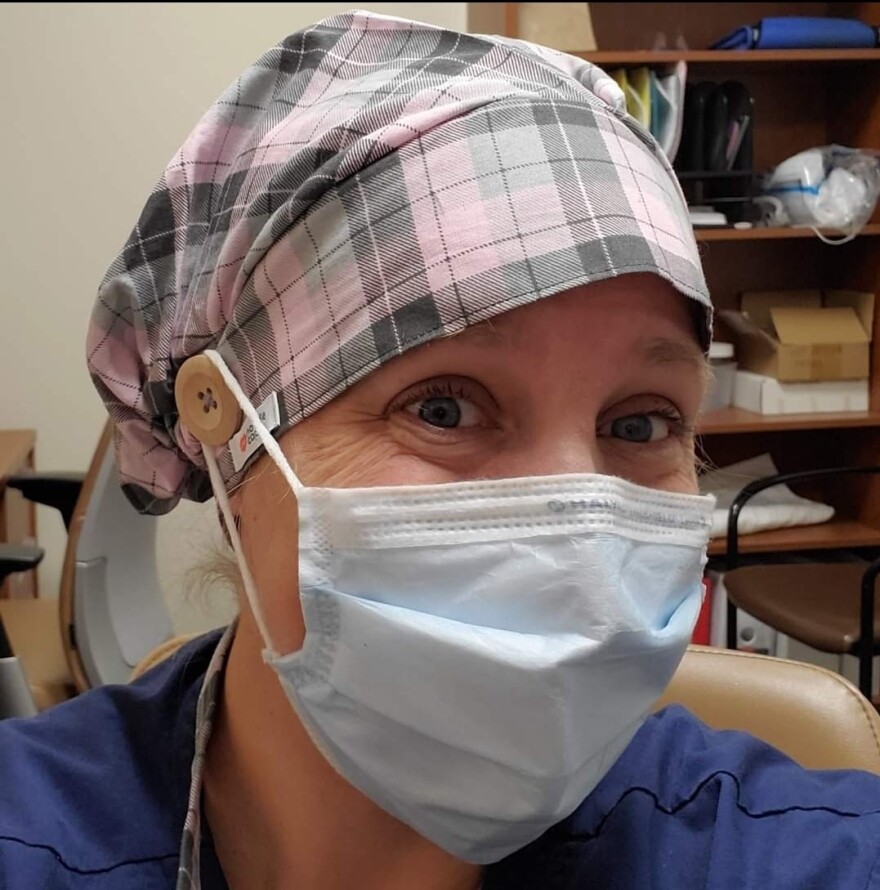The effects of the pandemic can register anywhere from a relative nuisance like wearing a mask, to the devastation of dying in an isolation ward, apart from family and friends. But for frontline medical workers everywhere, COVID has meant confronting an endless series of crises.
And as the pandemic prepares to enter its third year, many of those frontline workers are struggling to see any light at the end of the tunnel.
“Right now, it’s hard to see that light,” said Stephanie Fuller, an ICU charge nurse at Carle BroMenn Medical Center in Normal. “I’d like to think it’s coming one of these days.”
Fuller has been a nurse since 2004. It comes as no real surprise to hear her say that past two years have been unlike anything in her medical career.
“It’s been a whirlwind, that’s for sure,” she said.
Getting through the whirlwind has meant nurses must lean on each other, said Fuller — especially when it comes to losing a patient. “It's very much something that the whole group goes through. And sometimes we just have to take a minute and go back to our break room and cry it out. We've done a lot of that,” she said.
“We just try to hold each other up.”
There have been glimmers of hope, however — even amid the recent surge of patients caused by the highly infection omicron variant. While patients come in just as sick as they have with previous variants, Fuller said they seem to be recovering faster.
“I think the outcomes have been better,” she explained. “People are out there getting their vaccines, and — you know — we're having a lot more wins than we used to.”
Fuller said vaccines have made a measurable difference in patient outcomes, noting “I can’t remember the last time we lost a patient that was vaccinated.”
People who are vaccinated are contracting COVID and they are showing up in ICUs. But there’s a key difference between those who are vaccinated and those who aren’t, according to Fuller. Vaccinated patients are “recovering much faster, and they're walking out of the hospital,” Fuller said. “And I think that says it all.”
She understands that some people are hesitant to get vaccinated. She doesn’t judge them. Instead, those patients inspire in her what she calls a “complete sadness.” It’s difficult for Fuller to watch a patient struggle with the worst effects of the disease, knowing they could’ve taken a different path.
“My heart goes out to them and I just wish they had made a different choice,” she said.
But Fuller stands by her patients no matter what, always giving the best care she can. “Because at the end of the day, you know we're all human, and we're a community, and the beautiful thing about America is you do have the freedom of choice,” she said. “I just wish you’d get the vaccine.”
At times, the stress of the pandemic can be overwhelming. “It's really made you question your career choice at times,” Fuller said. But she has no plans to leave nursing, despite high levels of burnout plaguing the profession.
“At the end of the day, this is what we've all trained for. We've worked for this, we went to school for this, and we have a passion for this,” she said. “It’s our time to do what we've always wanted to do. And that's to help people and to save lives and to be there for the community.”
Still, Fuller said, it’s a heavy burden to bear. She used to dread her 30-minute commute home from work. Now, she uses that time to decompress; to both celebrate the patients who were saved and mourn those who were lost.
And as for the pandemic, “I'm just going to keep hoping and praying that the end is near,” she said.



